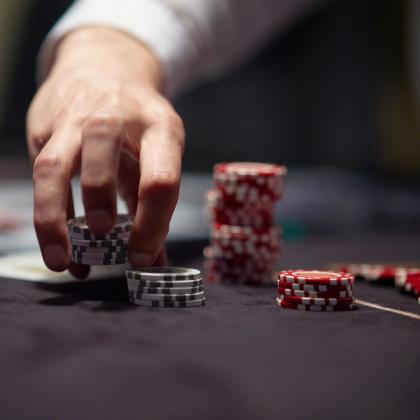Around 0.5% of the adult population in England experience problems gambling, 3.8% are at elevated risk of gambling harms and an estimated 7% are negatively affected by someone else’s gambling. NICE has published NG248 – its first recommendations on gambling, covering the identification, assessment and treatment of people over the age of 18 who are experiencing gambling-related harms. The recommendations are also for people of any age affected by someone close to them who is experiencing gambling that harms. In this episode, Dr Roger Henderson looks at some of the key points in the guideline as well as the pharmacological options that are recommended if required.
Key take-home points
- Until now, there have been no national UK guidelines on diagnosing or treating gambling that harms.
- Treatment for gambling is provided in clinical settings by the NHS and in community and residential settings by charities or community organisations – the so-called "third sector".
- The most common route into treatment is the National Gambling Helpline, which mostly refers to third-sector providers. Self-referral is the second most-reported route.
- The new NICE guideline covers identifying, assessing and treating people over 18 years old who are experiencing gambling-related harms.
- The recommendations are also for people of any age affected by someone close to them who is experiencing gambling that harms.
- Selected recommendations in the guideline include:
- "Consider asking people about gambling (even if they have no obvious risk factors for gambling-related harm) when asking them about smoking, alcohol consumption or use of other substances..."
- "Consider asking people about gambling if they [...] have a neurological condition or acquired brain injury that leads to disinhibition or increased impulsivity"
- "Offer group CBT [cognitive behavioural therapy] to reduce gambling severity and frequency. Start this intervention as soon as possible after diagnosis"
- "Offer individual CBT if the person does not wish to join a group, if group therapy is not possible (for example, there are no other people available to form a suitable group), or it is assessed as not suitable for the person."
- "CBT should [...] be provided as a course, usually with 8 to 10 sessions for group therapy or 6 to 8 sessions for individual therapy..."
- "Consider naltrexone to reduce gambling severity if psychological therapy has not achieved the desired outcomes after an appropriate course has been completed or the person has repeated relapses despite having received an appropriate course of psychological therapy"
- "Naltrexone should be started by, or under the supervision of, an appropriately qualified and experienced specialist"
- "When starting naltrexone: check that kidney and liver function are within normal ranges" and "check that people are not taking opioids before starting naltrexone (and advise people to avoid taking opioids while taking naltrexone)"
- "Consider an initial dose of 25 mg once a day for 3 days, then increase the dose to 50 mg once a day for 4 to 6 months"
- "Recognise that relapse in people whose gambling has decreased after treatment can be distressing for the person and may lead to suicide or self-harm"
Key references
- NICE. 2025. https://www.nice.org.uk/guidance/ng248.
- GOV.UK. 2023. https://www.gov.uk/government/publications/gambling-related-harms-evidence-review/gambling-related-harms-evidence-review-summary--2.
- Gambling Commission. 2024. https://www.gamblingcommission.gov.uk/about-us/statistics-and-research/gambling-survey.
- NHS. 2023. https://view.officeapps.live.com/op/view.aspx?src=https%3A%2F%2Fhiowhealthcare.nhs.uk%2Fapplication%2Ffiles%2F6916%2F9779%2F6029%2FNaltrexone_national_guidelines_v1.0.docx&wdOrigin=BROWSELINK.
Create an account to add page annotations
Add information to this page that would be handy to have on hand during a consultation, such as a web address or phone number. This information will always be displayed when you visit this page
